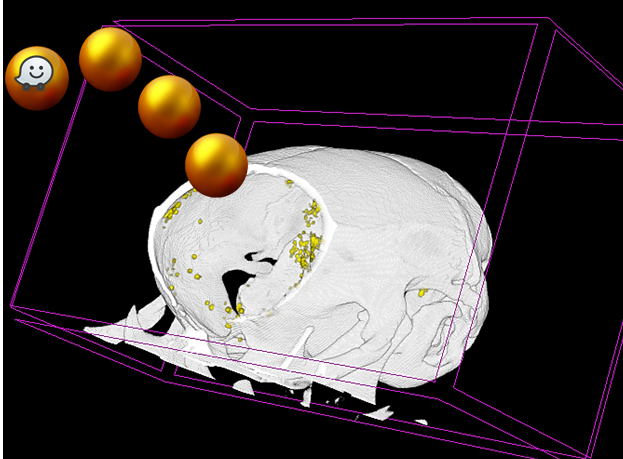Relief for a Suffering Soul

Bioengineering research can promote the development of technologies for treatment of neuropsychiatric disorders. In the Faculty of Engineering and Brain Research laboratories, PhD student Oshra Betzer is currently developing innovative technologies based on nanoparticles for treatment of depression and addiction.
Bioengineering can significantly contribute to the development of therapeutic techniques and technologies for detecting various diseases and physical impairments. Oshra Betzer, a graduate student in a combined program of bioengineering and brain research, supervised by Prof. Rachela Popovtzer and Prof. Gal Yadid, is currently researching and developing nanoparticle-based technologies for treating neuropsychiatric diseases, including depression and addiction.
Betzer, a married mother of six, had worked in the high-tech industry for nine years, earned an additional degree in Speech Therapy and Audiology in Tel Aviv University, and then worked in speech and hearing clinics. Four years ago, she decided to return to the academic world. “I like studying very much, and after years in the industry, I realized that for me, research is much more interesting and challenging than implementation”, she says. “I searched for an area that could combine all the fields I had specialized in – computing, speech and hearing – and I chose to study in the interdisciplinary program of Neuroscience in Bar Ilan University, which combines several fields related to brain research. During my Master’s degree in brain research, I read an interview with Prof. Rachela Popovtzer, of the Faculty of Engineering, in which she described her innovative research using gold nanoparticles for imaging and targeted treatment of cancer. I applied to her with a request to be my
PhD supervisor, and focus on research of brain disorders. To my delight, she agreed, and thus we contacted Prof. Gal Yadid of the Brain Research Center, who conducts research in the field of neuropsychoparmacology.”
Betzer’s first study on a possible treatment for depression involved injection of stem cells into rat brain. The cells were labeled with gold nanoparticles, to enable their imaging and tracking by CT scanning, which allowed identification of the brain regions to which the cells migrated, analysis of the linkage of these regions to the pathology, and evaluation of the therapeutic implications. “We succeeded in labeling the cells and tracking them over one month, and found that they indeed migrated to brain regions relevant to depression. We were also able to quantify the amount of cells in each region. In addition, behavioral tests we conducted at the end of this period showed a significant improvement in measures of depression. Our study was published in the prestigious journal ACS Nano and Scientific Reports”, she recounts. “Next, we examined the same method in a model for cocaine addiction, and found that the stem cells migrated to addiction-related brain regions, and led to behavioral improvement as well. Another goal is to find nanoparticle-based methods for transporting drugs through the blood-brain barrier – a structural barrier between the blood vessels and the brain, whose role is to protect the brain, though its existence makes the penetration of therapeutic drugs from the blood to the brain more difficult. Conjugation of the drug to nanoparticles will further enable its controlled release within distinct brain regions.
This past September, Betzer presented her work at the World Molecular Imaging Congress (WMIC) in New York. “This is a large international conference, in which researchers in the field of imaging, from all over the world, presented their work. I traveled to the conference with two other doctoral students from Prof. Popovtzer’s lab – Rinat Meir, who studies methods for imaging and immune cell therapy, and Tamar Dreifuss, who studies methods for imaging and treating cancer with nanoparticles. The three of us had received scholarships for outstanding students in Applied and Engineering Science from the Ministry of Science and Technology, and we also won special travel grants for this conference from the Ministry. In the conference, I was one of the speakers in the panel on neurological imaging. I presented our method for cell tracking in the brain, and our results on depression and addiction. There was general interest in this research topic”. During the conference, Betzer won a WMIC monetary award for the best paraclinical paper.
Betzer enjoys her work, and she is fascinated by the possibility of developing additional technologies. “I am very much enjoying my doctoral studies and projects, and see myself continuing with research in the future. The atmosphere in the Faculty of Engineering is wonderful, the researchers and students are really nice, love to help and create collaborations, and my supervisors, Prof. Popovtzer and Prof Yadid are amazing”.
Last Updated Date : 06/09/2017



